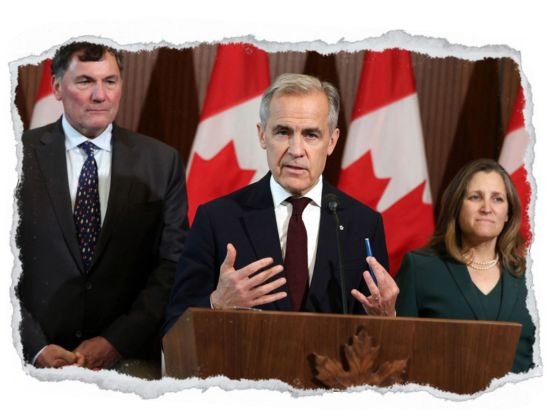
Canadian Prime Minister Mark Carney has firmly defended his decision to invite Indian Prime Minister Narendra Modi to the upcoming G7 summit in Kananaskis, despite ongoing diplomatic tensions between the two nations. At a press briefing on Friday, Carney addressed questions from Canadian reporters who raised concerns about the invitation in light of the unresolved killing of Khalistani separatist Hardeep Singh Nijjar in British Columbia last year.
When asked directly why Modi was invited, Carney emphasized that the participation of major global players is essential for meaningful discussions at international forums. “India is the world’s fifth-largest economy, the most populous country, and a critical part of global supply chains,” he stated. He further explained that issues like energy security, artificial intelligence, and critical minerals require input from nations like India, regardless of ongoing investigations.
Carney confirmed that he personally extended the invitation and Modi accepted. “I invited Prime Minister Modi, and he has agreed to participate,” he said, calling India’s presence “vital.”
Carney, however, refused to comment on the ongoing investigation into Nijjar’s murder, citing the importance of respecting legal procedures. “There’s an ongoing legal process in Canada, and it would be inappropriate to make any public remarks that could compromise it,” he said. By doing so, Carney signaled a departure from politicizing the issue, focusing instead on institutional processes.
Notably, Carney dodged a question about whether he believed Modi had any role in Nijjar’s killing, reinforcing his stance that it’s not appropriate to comment while the case is under legal scrutiny.
Mark Carney recently took over as Prime Minister after leading the Liberal Party to victory in Canada’s general elections. A former central banker in Canada and the UK, Carney is also known for his climate finance advocacy. He replaces Justin Trudeau, who in 2023 publicly accused Indian agents of involvement in Nijjar’s assassination — an allegation strongly denied by India.
Carney’s tone has been more measured. He affirmed Canada’s commitment to the rule of law and reassured the public that law enforcement agencies have full independence in handling the Nijjar case.
Adding to the evolving narrative, a recent public inquiry into foreign interference in Canada found no conclusive evidence of direct foreign involvement in Nijjar’s killing. Initial intelligence had treated the murder as a gang-related incident. Although later assessments suggested potential Indian links, Indian authorities consistently denied any involvement.
The inquiry also revealed that the Trudeau administration had wanted a public acknowledgment from India but simultaneously maintained a pragmatic diplomatic approach to prevent relations from deteriorating further. Several high-level meetings were held between Indian and Canadian national security officials in mid-2023, but no consensus was reached.
With Carney taking a non-confrontational and law-based approach, observers are now watching closely to see whether relations between India and Canada stabilize under his leadership. His invitation to Modi for the G7 Summit is being interpreted as a signal of pragmatism and acknowledgment of India’s growing geopolitical and economic importance.
While the Nijjar issue remains unresolved in public discourse, Carney’s approach suggests a preference for institutional integrity over political posturing — a notable shift in tone from his predecessor.